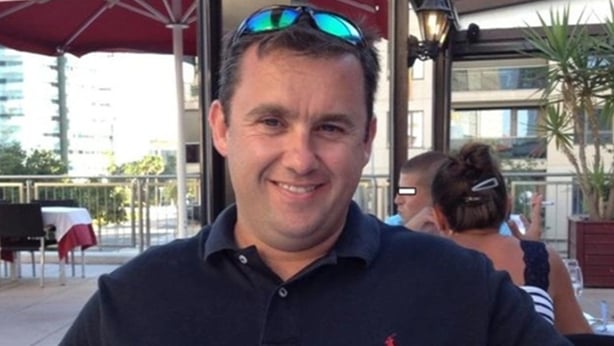The retrial of Molly Martens-Corbett and her father Thomas Martens for the murder of Limerick businessman Jason Corbett in the US state of North Carolina is to be moved from the venue of the original trial to the city of Winston-Salem.
In court submissions last week, defence lawyers had argued the father and daughter could not get a fair trial at the original venue because of extensive social media commentary on the case could have possibly affected potential jurors in Davidson County.
A judge granted requests from defence lawyers to move the re-trial from mostly rural Davidson Country to Forsyth County, the site of the City of Winston-Salem, the fourth biggest city in North Carolina.
Forsyth County Superior Court Judge David Hall notified prosecution and defence lawyers of his decision last night by email.
"After thorough review and consideration, I [will] allow the defendants' motions to change venue in these related matters," he wrote.
"Likewise, after careful review, I determine that Forsyth County is the most proper venue for the joint trial of these matters," Judge Hall said.
The retrial is set to take place in late June. Davidson Country has a population of 170,000, while Forsyth County has around twice the population, at 385,000, of whom 250,000 live in the city of Winston-Salem, where the trial will be held.
The original trial was held in Davidson Country because that is where Mr Corbett and Ms Martens-Corbett lived.
Portions of the defence's argument for a change of venue hinged on the jury from the first trial, as well as the response from Davidson County residents in the aftermath of the 2017 murder trial.

Defence lawyers argued the two accused cannot receive a fair retrial in the county the couple lived, because a faction of the county’s residents have indicated their allegiance lies with Mr Corbett’s family.
Last week, Ms Martens-Corbett's defence lawyer Doug Kingsbery told the court that Davidson County residents who posted negative comments on social media about his client and her father have created a toxic environment in the area for potential jurors.
Alan Martin, the Davidson County prosecutor, argued most of the people who posted negative comments about Ms Martens-Corbett and Martens live in Ireland.
Publicity from the case prompted Judge Hall to previously issue a gag order on the participants in the case, lest it taint the jury pool. The defence argues that it is too late.
Additionally, defence lawyer Jay Vannoy said trusting the word of potential jurors in Davidson County who may say they have formed no opinion on the case is naive.
He pointed to the word of three jurors from the 2017 trial who told members of the news media that they had decided from the outset of the trial that the father and daughter were guilty.
"I would contend that the clear record would present that we cannot … presume they’re going to be honest with us. It didn’t happen in the first trial," he said.
"These jurors were asked: 'Will you decide this case based on the evidence presented?’ The record shows they did not."
The attorney continued by saying that the jury foreman in the initial trial posited his own opinion outside the courthouse immediately following the conclusion of the trial, based on arguments that were not even introduced by the prosecution.
Mr Vannoy said that he had asked for a change of venue only three times in his career, including this instance, but said he believed it was imperative the parties be cautious in this case.
"In that county, there is so much built-up us versus them [mentality]," Mr Vannoy said of Davidson County.
"It’s clear and convincing. Their opinions are formed. Our clients cannot receive a fair trial."
The prosecutor in the case, Davidson Country District Attorney Alan Martin, argued that in the original trial, both sides had ample opportunity to object to potential jurors, and that there would be even more opportunity in the retrial.
He claimed in a country with 170,000 residents, it would not be a real concern to find a jury of 12, 14 or even 18 members who had not heard the previous case and had not formed views on it.
He said that the defence’s claims that the jurors’ opinions on Mr Martens must have been made outside the courtroom are not necessarily true.






